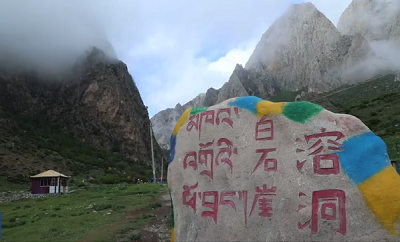The Decision was approved at the 27th Plenary Session of the Seventh Standing Committee of the People’s Congress of Tibet Autonomous Region on July 26, 2002, and amended at the 17th Plenary Session of the Ninth Standing Committee of the People’s Congress of Tibet Autonomous Region on July 30, 2010 and the Second Plenary Session of the 11th Standing Committee of the People’s Congress of Tibet Autonomous Region on March 30, 2018. April 17, 2018 -- The “blood money payment” practice was recorded in the laws of the old Tibet, a theocratic feudal serfdom. Since the democratic reform in 1959, the practice has been abolished with the end of the feudal serfdom and the theocratic system. In recent years, criminal activities of “blood money payment” conducted by the feudal patriarchal clans like “Pacuo”, and monks and nuns have reemerged in several remote areas in Tibet. The illegal practice is detrimental to the administration of justice, interests of the mass, local governance, economic development and social stability. It also poses a serious threat to the national judicial power, severely damaging the unification and dignity of the socialist legal system. In order to ban and crack down on the practice, the following decisions are made: 1. The practice of “blood money payment” shall be banned to safeguard the dignity of the laws. The hazards of the crime to society shall be clearly understood. The relative departments shall take targeted measures to crack down on criminal activities including manipulating and participating in practices of “blood money payment”, oppressing the people and racketeering. (2) Any defendant or their relatives who prevent the witness from testifying or instigate others to give false testimony by providing “blood money”, for the purpose of covering the criminal facts and evading legal sanctions, and whoever receives the “blood money” from the defendant in order to assist him or her to destroy or falsify evidence, if there is a serious violation of the laws, shall be investigated for criminal responsibility in accordance with Article 307 of the Criminal Law of the People’s Republic of China. (3) Whoever receives “blood money” from the offender for the purpose of assisting him or her to evade legal sanctions by the means of providing hiding place or property, assisting escape or giving false testimony, shall be investigated for criminal responsibility in accordance with Article 310 of the Criminal Law of the People’s Republic of China. (4) Whoever is involved in “blood money payment”, if the case is not serious enough for criminal punishment, shall be penalized in accordance with the Regulations of the People’s Republic of China on Administrative Penalties for Public Security. 3. Acts manipulated by the feudal patriarchal clans like “Pacuo”, and monks and nuns, which interfere in the administrative and judicial affairs, shall be cracked down in accordance with the laws. |
- Home
- News Tibet |Exclusive |China |World |Other Tibetan-Inhabited Area |Tibet through the Eyes of Foreigners |Related News
- Documents White Papers |Others
- Photo Politics |Economy & Society |Culture & Religion |Human & Nature |Beautiful Tibet |Other Tibetan-Inhabited Area |Exchanges |Related
- Video News |Documentary |Micro-Video |Entertainment
- Art
- Tourism
- In Focus
- About Tibet






